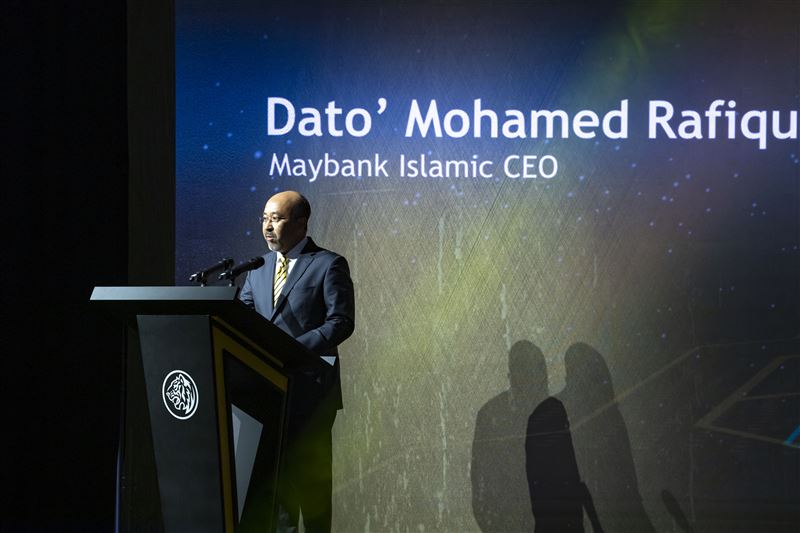Malaysia’s Maybank to chart a new course in the region
With Malaysia’s biggest bank opening its first overseas branch in Dubai, will the industry benefit from greater collaboration

The Islamic economy has been thriving in the last few decades, with worldwide spending on the sector estimated to reach a whopping $3.2 trillion by 2024.
Within the industry, Malaysia, the UAE, Bahrain and Saudi Arabia lead the rankings out of 73 countries, according to the latest edition of the annual State of the Global Islamic Economy survey done by research company DinarStandard, released late last year.
The report, which covers sectors including Islamic finance, halal food, modest fashion, Muslim-friendly travel, cosmetics and pharmaceuticals, and Islamic-themed media, found that Islamic finance is the largest sector, amounting to a staggering $2.5 trillion in 2018.
While Malaysia topped in the Islamic finance and travel categories, the UAE led in the five other sectors, it found.
It is in order to tap into this booming cross-country growth segment that Malaysia’s biggest Islamic bank – Maybank Islamic – recently launched operations in the Dubai International Financial Centre (DIFC) – marking its first overseas office.
Maybank Islamic, the Shariah-compliant division of Malaysia’s largest lender Malayan Banking Berhad (Maybank), was granted the full Islamic banking licence from the Dubai Financial Services Authority (DFSA) in July 2019.
Last month, at a gala launch event peppered with 3D videos that saw Dubai’s Deputy Ruler and president of the DIFC Sheikh Maktoum bin Mohammed bin Rashid Al Maktoum attend, the Malaysian lender’s CEO stressed that its plan was to become a “link between the GCC countries and the world’s fifth largest economy that is the ASEAN economic community”.
The bank, whose total assets stood at over $57.35bn as of September 30, 2019, will start with a lean presence in the region with a team of nine, and focus on wholesale banking with an emphasis on corporate financing, treasury and capital markets and trade finance. Initially, it will focus on the GCC markets of UAE, Saudi Arabia and Kuwait.
“We have done sukuk transactions for clients in the GCC over the last few years, and why we are here on the ground, is that if we are closer to where the pulse is, we should start to become more visible and become significant in the sukuk space,” says Dato’ Mohamed Rafique Merican, group CEO Maybank Group Islamic Banking and Maybank Islamic CEO.
Maybank, recently announced as one of the leading arrangers in Bloomberg’s Global Sukuk League Table, has six sukuk transactions potentially that it is looking at in the region, he confirmed.
“The other areas we want to take a look at are syndicated financing as well as Islamic trade facilities,” adds Rafique Merican.
Overcoming the regulatory challenge
The one issue that has plagued the global spread of Islamic financing is the lack of a unified set of regulations for Sharia compliant players. The existence of different structures in the market has led to issues on transparency and policies around risks.
Some countries – including the UAE – have taken steps to address the issue, with the formation of a central Sharia board in the country as well as the establishment of the Dubai Islamic Economy Development Centre in Dubai.
“Yes, there are differences [in the Islamic finance industry] as opposed to the conventional system, which has been there for 300 years and is now well-defined internationally,” admits Rafique Merican.
“Islamic finance is developed out of individual countries, and there have to be market players and regulators who are prepared to actually go beyond just doing business, but with the aspiration of actually linking and standardising what is possible in the realm of international business.
“For sukuk, for example, a group of people actually sat down and worked together to see what format of sukuk issuance is acceptable to the investors at large. So, if we look at the differences, it could be a long list. But if we start with similarities and commonalities and areas that we can actually work together and want to work together, it could be a fairly short list.”
The CEO also emphasises that there is significant opportunity in the wider Islamic economy – beyond just finance, which industry players need to tap – together.
“The challenge for me now is that we have good traction, we have a sizable platform – so where do we take it? It has to be beyond borders, it has to be beyond just financial services, because there is also the halal economy – that is still an area which has actually grown side by side, but not necessarily in tandem.
“The challenge is beyond just the business side of it. I think for the larger players, it is the expectation and the requirement for them to also step up and engage at the developmental level, the policy level, the industry level and make sure it continues to build on this momentum,” he adds.
Growth plans
While enthusiastic about the opening of the new branch in Dubai, Rafique Merican stresses that in the initial years, the regional operations “will not be significant” in terms of a contribution to its overall operations.
“That’s because a big chunk of our business revenue comes from three countries – including Malaysia, Indonesia and Singapore – which is quite sizable. The space that we’re looking at over the next three to five years here, is to start building momentum for it.
“The potential for business here is sizeable, but we need to also map it against our own risk appetite,” he explains. “We need to understand relationships. We need to understand the rules and how things work here better, before we can actually start to expand.”
